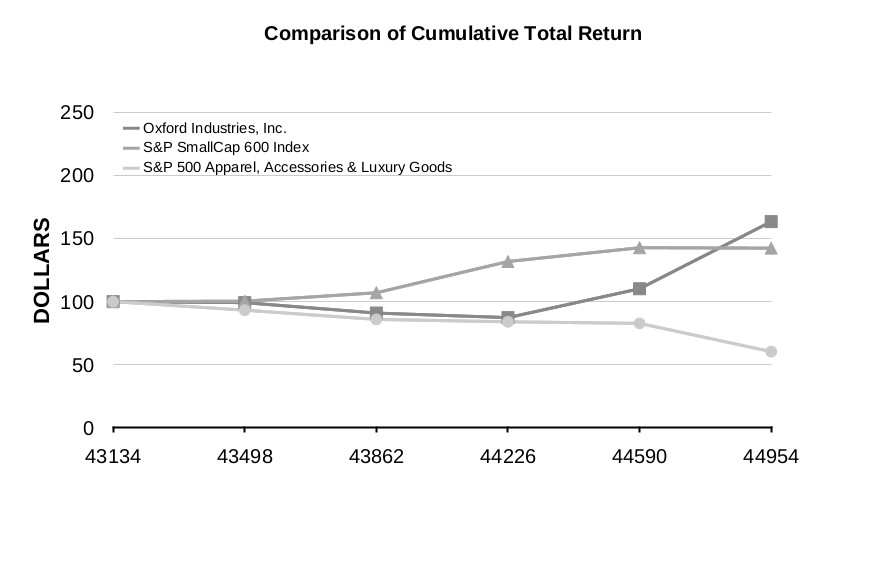location, we may be unable to close an underperforming location due to continuous use clauses and/or because negotiating an early termination would be cost prohibitive. In addition, due to the fixed-cost structure associated with these operations, negative cash flows or the closure of a retail store or restaurant could result in impairment of leasehold improvements, impairment of operating lease assets and/or other long-lived assets, severance costs, lease termination costs or the loss of working capital, which could adversely impact our business and financial results. Furthermore, as each of our leases expire, we may be unable to negotiate renewals, either on commercially acceptable terms or at all, including as a result of shifts in how shopping center operators seek to merchandise the particular center’s lineup, which could force us to close retail stores and/or restaurants in desirable locations.
Furthermore, a deterioration in the financial condition of shopping center operators or developers could, for example, limit their ability to invest in improvements and finance tenant improvements for us and other retailers and lead consumers to view these locations as less desirable. In addition, if our e-commerce businesses continue to grow, they may do so in part by attracting existing customers, rather than new customers, who choose to purchase products from us online through our websites rather than from our physical stores, thereby reducing the financial performance of our bricks and mortar operations, which could have a material adverse effect on our results of operations or financial condition.
We make use of debt to finance our operations, which could expose us to risks that adversely affect our business, financial position and operating results.
Our levels of debt vary as a result of the seasonality of our business, investments in our operations, acquisitions we undertake and working capital needs. As of January 28, 2023, we had $119 million of borrowings under our U.S. Revolving Credit Agreement, which was primarily driven by our acquisition of Johnny Was.
In the future, our debt levels may increase under our existing facility or potentially under new facilities, or the terms or forms of our financing arrangements may change. Our indebtedness under the U.S. Revolving Credit Agreement includes certain obligations and limitations, including the periodic payment of principal, interest and unused line fees, maintenance of certain covenants and certain other limitations. The negative covenants in the U.S. Revolving Credit Agreement limits our ability to, among other things, incur debt, guaranty certain obligations, incur liens, pay dividends, repurchase common stock, make investments, sell assets or make acquisitions. These obligations and limitations may increase our vulnerability to adverse economic and industry conditions, place us at a competitive disadvantage compared to any competitors that may be less leveraged and limit our flexibility in carrying out our business plans and planning for, or reacting to, change.
In addition, we are subject to interest rate risk on the indebtedness under our variable rate U.S. Revolving Credit Agreement, particularly in the current macroeconomic environment. An increase in the interest rate environment, such as the recent increases in interest rates implemented by the Federal Reserve, would require us to pay a greater amount towards interest on our borrowings.
The continued growth of our business depends on our access to sufficient funds. If the need arises in the future to finance expenditures in excess of those supported by our U.S. Revolving Credit Agreement, we may need to seek additional funding through debt or equity financing. Our ability to obtain that financing will depend on many factors, including prevailing market conditions, our financial condition and our ability to negotiate favorable terms and conditions. The terms of any such financing or our inability to secure such financing could adversely affect our ability to execute our strategies, and the negative covenants in our debt agreements, now or in the future, may increase our vulnerability to adverse economic and industry conditions and/or limit our flexibility in carrying out our business strategy and plans.
The loss of one or more of our key wholesale customers, or a significant adverse change in a customer’s financial position, could negatively impact our net sales and profitability.
We generate a material percentage of our wholesale sales, which was 20% of our net sales in Fiscal 2022, from a few key customers. Although our largest customer only represented 4% of our consolidated net sales in Fiscal 2022, the failure to increase or maintain our sales with our key customers as much as we anticipate would have a negative
